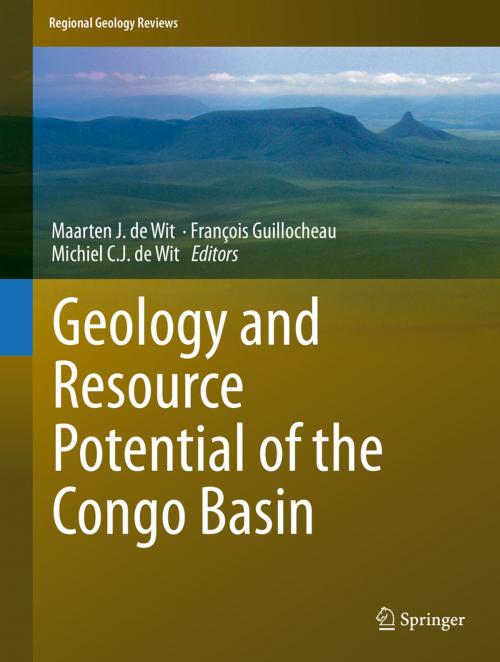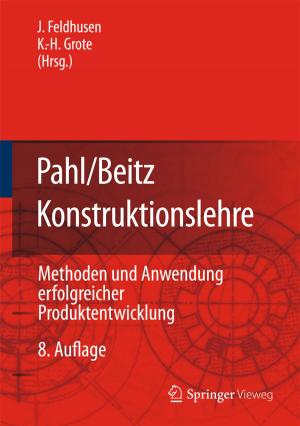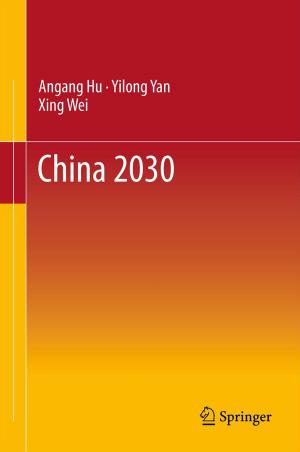Geology and Resource Potential of the Congo Basin
Nonfiction, Science & Nature, Science, Earth Sciences, Geology, Geography| Author: | ISBN: | 9783642294822 | |
| Publisher: | Springer Berlin Heidelberg | Publication: | January 2, 2015 |
| Imprint: | Springer | Language: | English |
| Author: | |
| ISBN: | 9783642294822 |
| Publisher: | Springer Berlin Heidelberg |
| Publication: | January 2, 2015 |
| Imprint: | Springer |
| Language: | English |
This book summarizes the geomorphology, geology, geochronology, geophysics and mineral resources of the Congo Basin, one of the world’s most enigmatic and poorly understood major intra-continental sedimentary basins, and its flanking areas of Central Africa. It provides an up to date analysis of the large region’s origin and evolution. The book’s nineteen chapters take the reader through the entire basement history, as well as the Basin’s ca. 700 million years of cover sequences. Starting from its Archean cratons and Proterozoic mobile belts, and proceeding through the Phanerozoic sequences, including the most recent Cenozoic successions, the book also explores the present drainage systems and the subtle but complex topography of the Congo Basin. It also presents and evaluates new basin models and related dynamic processes, as well as revised correlation schemes with its Gondwana counterparts in South America, all of which provide key insights into its rich diamond deposits and other mineral wealth, which are documented in the final chapters.
A specific feature of this book is its synthesis, performed by teams of active experts, of a vast amount of geoscientific data previously only recorded in research reports, company reports, survey bulletins, and scattered journal articles and books.
The sheer size of the Congo Basin (ca.1.8 million km2, or just under half the area of the EU) and Central Africa (some 7 million km2, or more than 70% of the area of the USA) will make this a sought-after source of information and inspiration on this unique region.
This book summarizes the geomorphology, geology, geochronology, geophysics and mineral resources of the Congo Basin, one of the world’s most enigmatic and poorly understood major intra-continental sedimentary basins, and its flanking areas of Central Africa. It provides an up to date analysis of the large region’s origin and evolution. The book’s nineteen chapters take the reader through the entire basement history, as well as the Basin’s ca. 700 million years of cover sequences. Starting from its Archean cratons and Proterozoic mobile belts, and proceeding through the Phanerozoic sequences, including the most recent Cenozoic successions, the book also explores the present drainage systems and the subtle but complex topography of the Congo Basin. It also presents and evaluates new basin models and related dynamic processes, as well as revised correlation schemes with its Gondwana counterparts in South America, all of which provide key insights into its rich diamond deposits and other mineral wealth, which are documented in the final chapters.
A specific feature of this book is its synthesis, performed by teams of active experts, of a vast amount of geoscientific data previously only recorded in research reports, company reports, survey bulletins, and scattered journal articles and books.
The sheer size of the Congo Basin (ca.1.8 million km2, or just under half the area of the EU) and Central Africa (some 7 million km2, or more than 70% of the area of the USA) will make this a sought-after source of information and inspiration on this unique region.















